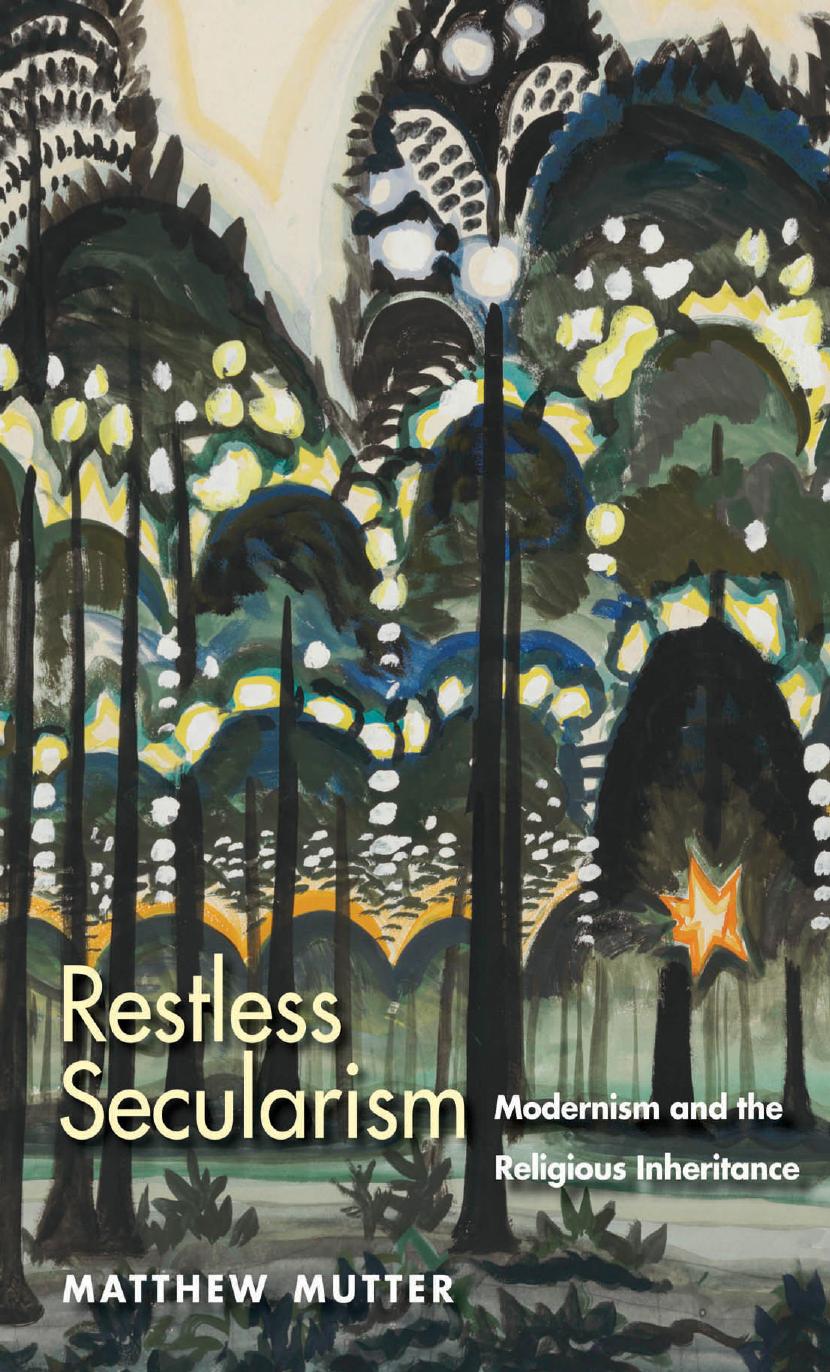Restless Secularism: Modernism and the Religious Inheritance by Matthew Mutter

Author:Matthew Mutter [Mutter, Matthew]
Language: eng
Format: epub, pdf
ISBN: 9780300221732
Google: sUwmDwAAQBAJ
Amazon: 0300221738
Publisher: Yale University Press
Published: 2017-01-15T00:39:37.942000+00:00
MAGIC, “CIVILIZATION,” AND SECULAR IMPERIALISM
Prospero wants to take vengeance on the Romans. I discussed in the introduction the problem of contemporary critics who celebrate magic and occultism as a mode of resistance to various cultural hegemonies, particularly in colonial contexts. Gauri Viswanathan, Helen Sword, Christopher Bracken, and Randall Styers all argue, as Styers has written, that the “subversive passions” of magic “ha[ve] proved a potent medium with which to contest the hegemonic social structures and norms of modernity.”15 These contentions begin with a criticism of the implicitly triumphalist narratives of much early anthropology of religion, for which magic was conceived as primitive religion, and both magic and religion as primitive (and now obsolete) Western science. R. G. Collingwood (whom Auden admired) and Ludwig Wittgenstein laid the philosophical ground for this critique many years ago.16 But critics who celebrate magic tend to conflate the need to contest secular Western norms with a wholesale delegitimization of Western science and rarely investigate the normative implications of the occult attitudes that ostensibly liberate the subject.17
The fundamental difference between Auden and the contemporary celebrants of magical thinking is this: the critics believe that to subvert the hierarchies one must eliminate the dualisms. According to this line of thought, to draw a significant distinction between, for instance, reason and instinct is to devalue the body. Magical thinking therefore tends toward a monism that collapses all binaries. Auden, however, maintains that one can eliminate the hierarchies without eliminating certain dualisms. Indeed, he believes that there is an essential dualism—between history and nature—that is critical to the modern (Christian and secular) sense of historical responsibility and historical critique. For Auden, one must maintain a distinction between the legitimate claims of the human person, who is capable of original, historical agency, transformative imagination, and an experience of the unconditional, on the one hand, and, on the other, the legitimate claims of the body and material life, which are the sources of pleasure and happiness but which constrain, limit, and often frustrate experience and agency. History is a personal order; nature is an impersonal order. Neither should be devalued, but they cannot be magically conflated.
Auden knew very well that Enlightenment rationalism harbored imperialist instincts; he dramatized the problem in his Christmas oratorio, For the Time Being (1942), published just two years before The Sea and the Mirror (1944).18 In the New Testament, Herod is a pro-Roman Jewish king who slaughters infants in an attempt to prevent Jesus of Nazareth from eventually replacing him as “king of the Jews.” In For the Time Being, a retelling of the Christmas story in light of midcentury concerns, Auden’s Herod is imagined as a secular, liberal, enlightened ruler at the frontiers of empire, exasperated by the recalcitrancy of magical thinking among his subjects. Written during the bleakest period of the Second World War, this portrait of Herod takes a step back from the reality of nationalist barbarism and explores the limits of the liberal perspective that might oppose it. Herod complains (in prose, of
Download
Restless Secularism: Modernism and the Religious Inheritance by Matthew Mutter.pdf
This site does not store any files on its server. We only index and link to content provided by other sites. Please contact the content providers to delete copyright contents if any and email us, we'll remove relevant links or contents immediately.
| African | Asian |
| Australian & Oceanian | Canadian |
| Caribbean & Latin American | European |
| Jewish | Middle Eastern |
| Russian | United States |
4 3 2 1: A Novel by Paul Auster(12393)
The handmaid's tale by Margaret Atwood(7767)
Giovanni's Room by James Baldwin(7347)
Big Magic: Creative Living Beyond Fear by Elizabeth Gilbert(5775)
Asking the Right Questions: A Guide to Critical Thinking by M. Neil Browne & Stuart M. Keeley(5775)
Ego Is the Enemy by Ryan Holiday(5450)
The Body: A Guide for Occupants by Bill Bryson(5098)
On Writing A Memoir of the Craft by Stephen King(4945)
Ken Follett - World without end by Ken Follett(4734)
Adulting by Kelly Williams Brown(4576)
Bluets by Maggie Nelson(4559)
Eat That Frog! by Brian Tracy(4542)
Guilty Pleasures by Laurell K Hamilton(4450)
The Poetry of Pablo Neruda by Pablo Neruda(4110)
Alive: The Story of the Andes Survivors by Piers Paul Read(4033)
White Noise - A Novel by Don DeLillo(4012)
Fingerprints of the Gods by Graham Hancock(4005)
The Book of Joy by Dalai Lama(3986)
The Bookshop by Penelope Fitzgerald(3854)
